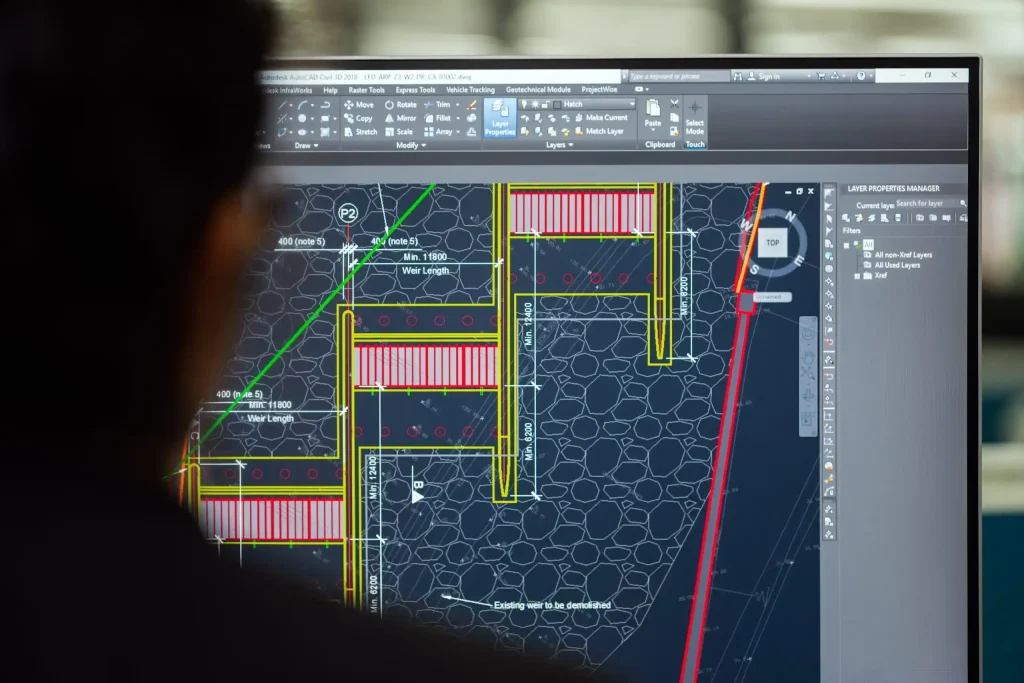Hey there, folks! My name’s Patric, and I am a mechanical engineer working as an assistant engineer. I’m almost at the end of my long journey to get an engineering bachelors degree. Do you still think that getting degrees in mechanical engineering is too complicated? Let me share my experience of studying mechanical engineering at my university.
So, What Made Me Choose Mechanics Engineering?
Well, growing up, I was always fascinated by how things worked. I loved taking things apart and putting them back together. And when I found out that mechanical engineering was all about analyzing and maintaining machines, I knew it was the perfect fit for me. But getting into the university wasn’t a piece of cake. The best schools for mechanical engineering are not easy to enter.
I had to study hard and make sure that I had a high GPA to even enter the submission part of the process. Many universities offer different degrees for mechanical engineering – bachelor’s and master’s degrees.
The first thing you need to know is that you can apply to any mechanical engineer college or mechanical engineering school you wish, but you need to bring your A-game. That means studying hard, getting good grades, and taking challenging courses in high school.
I created a list of the mechanical engineer colleges and universities I preferred and started choosing the best one for me. To enter my university, I needed to take the SAT or ACT exams and score well on them. For the SAT, I needed to score 1230-1480, or for the ACT – 29-34.
Every best mechanical engineering school, including my university, has high standards. And they want to see that you can handle the academic rigors of their engineering program. I also made a resume and got two letters of recommendation when I applied for a bachelors in engineering at my chosen mechanical engineer school.
And finally, I wrote a killer personal essay that helped me enter college mechanical engineering. This was my chance to showcase my passion for the field and explain why I was the perfect fit for this school of mechanical engineering. So, I managed to enter the best school for mechanical engineering!
Getting a mechanical engineering degree requires dedication, hard work and juggling multiple responsibilities. From complex coursework to internships and real world applications, it can be tough but rewarding. For students especially those who are studying and working or have other commitments, managing academic load is key. Sometimes balancing these demands means getting external help for time consuming tasks like research papers or projects.
If you’re feeling overwhelmed, consider buying purchase research paper services. Professional help allows you to focus on mastering core engineering principles and gain practical experience while ensuring your academic tasks are done well. This way you can stay balanced and on track to getting your mechanical engineering degree.
Patric, Is It Hard to Study at Colleges Mechanical Engineering?
Guys, every studying process is a difficult path, but if you have the desire to get a bachelors engineering, you’ll do it! The process of studying in mechanical engineering at the university was quite challenging, especially for someone like me, who was juggling studies and work while being a parent and a husband. But I wanted to succeed, and that’s what kept me going. Mechanical engineer schools offer a great chance to become a “profi”, but you need to work hard. Engineers mechanical are the ones who make the world work, right?
I’ve developed a few of the best study tips for dealing with mechanical engineering:
- Diagrammatic representation: We mechanical engineers speak through drawings and try to express everything in a diagrammatic style. If you adopt this approach, you will never forget the principles at any point in time.
- Connect practice and theory: When you study a theory in class, always remember to check it in practice. For example, the efficiency of an engine can be measured to verify the second law of thermodynamics.
- Always study basics: Knowing basic subjects in mechanical engineering like Materials Mechanics, Materials Strength, Thermodynamics, etc. allows you to study more complex disciplines.
- Use study tools: You can use tools such as the planner Todoist, the organizer Evernote, or Mindmeister to keep your ideas organized.
I remember spending countless hours in the library. I researched the unions and their benefits, trying to figure out the best way to pass the exams. All top mechanical engineering schools offer a great choice of unions. I joined the mechanical engineering union at my university. Joining a union provides you with a sense of community and support that can help you succeed in your studies.
When it comes to passing exams, it’s important to stay organized and focused. Don’t panic; you’ll pass everything! I used to make a study schedule for my mechanical engineer schooling and stick to it. I also reviewed the material using study guides, textbooks, and notes. Don’t forget to take breaks to avoid burnout, and don’t be afraid to ask your professors or classmates for help if you’re struggling.

Photo by ThisisEnhineering RAEng on Unsplash
Throughout my time in mechanical engineering I found one skill to be increasingly valuable – the ability to communicate complex ideas. Whether it was explaining a project to peers, presenting findings to professors or pitching designs in internships, creating a good PPT presentation became a big part of my studies. A good PPT can make all the difference in how your ideas are received and understood especially in a technical field.
For students with tight schedules, collaborating with experts to prepare a visually appealing and structured presentation can save time and stress. These resources help highlight the key points of your work so you can focus on delivering your message with confidence. Trust me, this skill is just as important as thermodynamics or material strength and will benefit you throughout your entire engineering career.
What About Combining Your Studies at Mechanical Engineering Schools with Work?
It’s definitely possible, but it takes some planning and prioritizing. I sometimes even managed to visit my favorite baseball team’s games on campus! Make sure to communicate with your employer about your academic schedule and workload. Use your free time, and try to avoid procrastination. And remember to take care of yourself; getting enough sleep, exercise, and healthy food is crucial for staying focused and productive.
As I got deeper into my studies, I began to understand how intricate and complex machines can be. Engineering bachelors degrees are not easy to get, but the idea that I could design a machine from scratch and then watch it come to life was exciting. I loved being able to take a problem, break it down into smaller parts, and then solve each piece of the puzzle until I had a working solution.
One of the peculiarities of getting a degree in mechanical engineering was the rigorous coursework. It included calculus, physics, and mechanics engineering, but I found the professors to be supportive and engaging, always willing to help me. So, even though getting a mechanical engineering degree is a thorny path, it’s worth it.
What’s Next after a Mechanical Engineer Degree?
After completing my degree in mechanical engineering, I had a lot of options available to me. I could have worked for a large engineering firm, started my own company, or even continued my education and pursued a master’s or a Ph.D. in this field. Instead, I chose to work at my company, and I am so glad that I did.
With mechanical engineering degrees, you can find job opportunities at job portals or company websites. You can also attend job fairs and networking events to connect with potential employers.
You can continue studying at mechanical engineering schooling. Take courses or get certifications to develop your skills and knowledge further. There are also various schools for mechanical engineering with advanced programs or specializations.
Finally, you can pursue careers in teaching by becoming professors at any school for mechanical engineering. With the high demand for skilled mechanical engineers, the opportunities are endless. So, finishing school mechanical engineering opens up hundreds of paths for you.
Recommended reads
Afterword
I hope that my story has helped you guys! Whether you’re interested in pursuing a degree for mechanical engineering or exploring the field, I would recommend it. The world needs more engineers. And with hard work and dedication, anyone can become a successful mechanical engineer!





